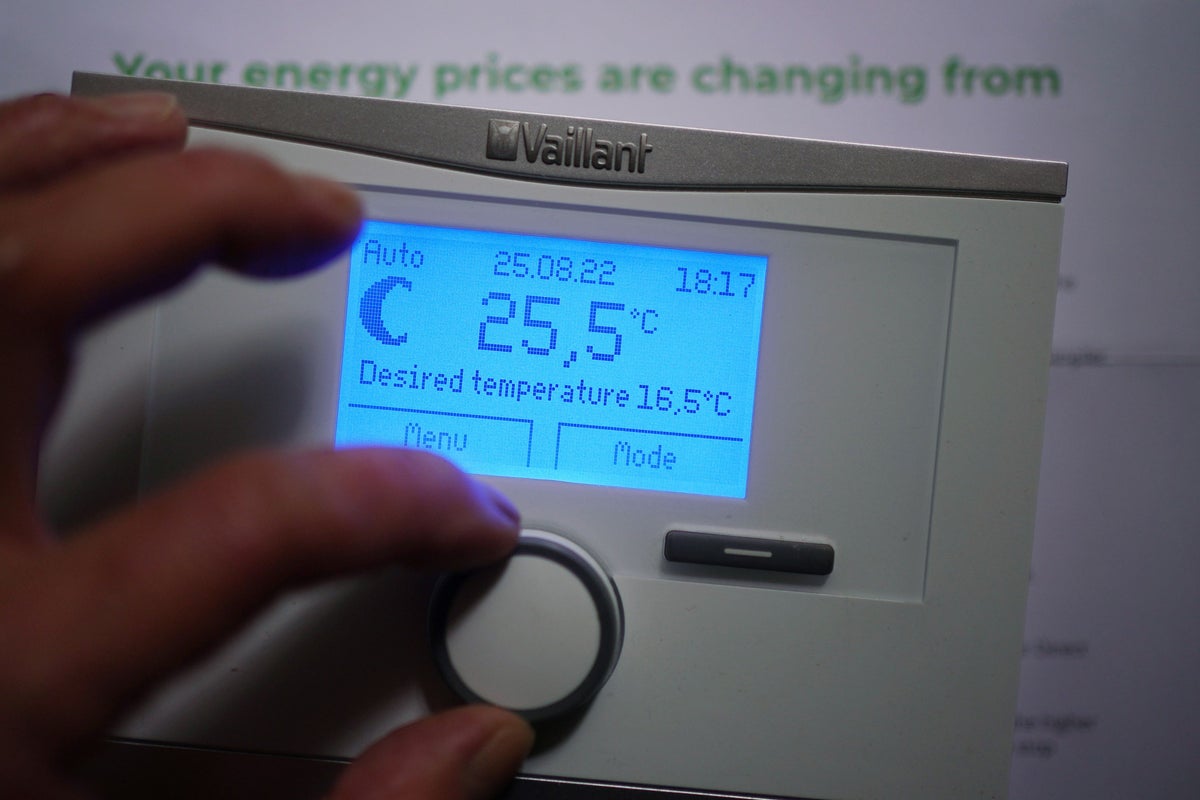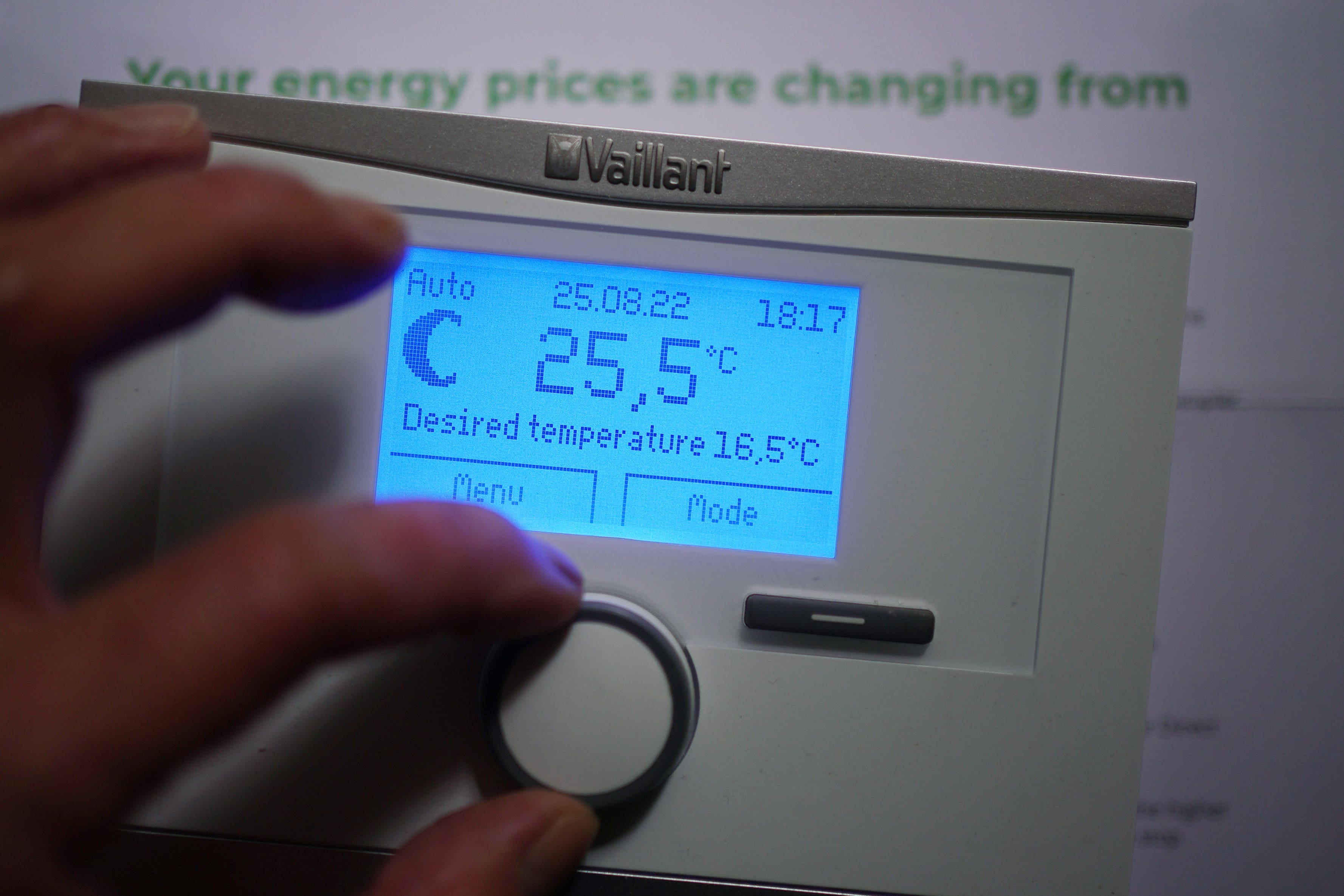
Britons will be advised to turn down their thermostats by 2C as part of a public information campaign on energy efficiency that ministers hope will save households around £400 a year, it has been reported.
Jeremy Hunt, the chancellor, confirmed in his autumn statement on Thursday that help with energy bills will continue next year but become less generous than current levels.
Sky-high energy bills are being fuelled by Russia’s war in Ukraine and will remain above average with the colder winter months fast approaching and people spending more time indoors.
If followed, officials believe the measures outlined in the campaign, to be launched before Christmas, could reduce the country’s usage by around 15 per cent, cutting an estimated £28bn from the national bill.

The Sunday Times reported that people will also be encouraged to reduce the flow rate of their boilers and install energy-efficient lightbulbs under the plans to be announced by Grant Shapps, the business, energy and industrial strategy secretary.
A senior government source told the paper that “most families can reduce their energy consumption by 15 to 20 per cent by smarter energy usage and insulation — so we need them to take responsibility for that”.
The government has announced a package of measures to help with the cost of living crisis, including a one-off £400 discount on energy bills for all households.
Mr Hunt said in his statement that the Energy Price Guarantee - which limits the unit cost of gas and electricity - will continue for another 12 months, but that the cap will rise to £3,000.
No decisions have been taken on what will happen with the scheme beyond March 2024 but it is understood that Mr Hunt wants it to end, The Sunday Times said.
A government spokesperson said: “Our existing public information campaign, Help for Households, is driving up the public’s awareness of all the support available to help them with the cost of living, including saving money on energy bills.
“We are also investing £6.6 billion in total this parliament to improve energy efficiency across the country, with the majority of our support targeting those on low income and vulnerable households.”
The public information campaign plan would mark another government U-turn and is in stark contrast to the position of Liz Truss’s administration.
The former prime minister was ideologically opposed to public information campaigns because she believed that government should not be in the business of telling or advising people how to live their lives.
In an autumn statement designed to rein in inflation and restore financial stability, Mr Hunt also deployed stealth taxes totalling £25bn and £30bn of cuts to public services to fill a £55bn gap in the government’s books.
He also set a course for austerity in public services such as police, transport and local government, providing no extra cash to offset soaring inflation for the next three years and slashing expected increases in the following three by £36bn.







